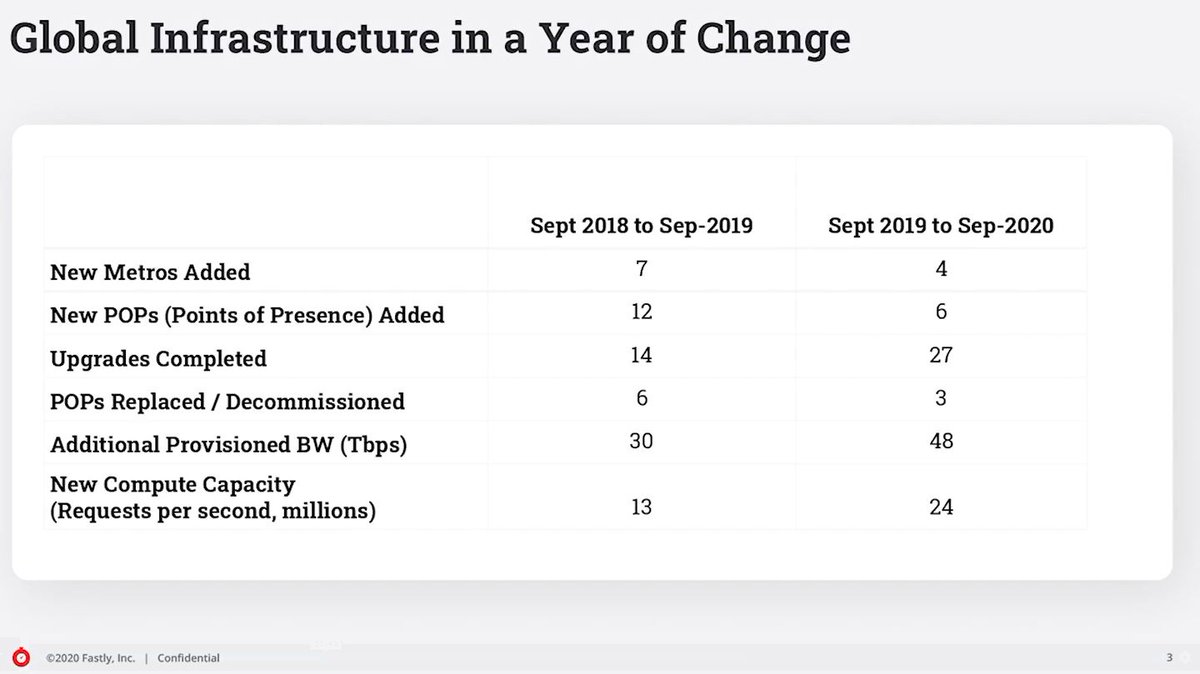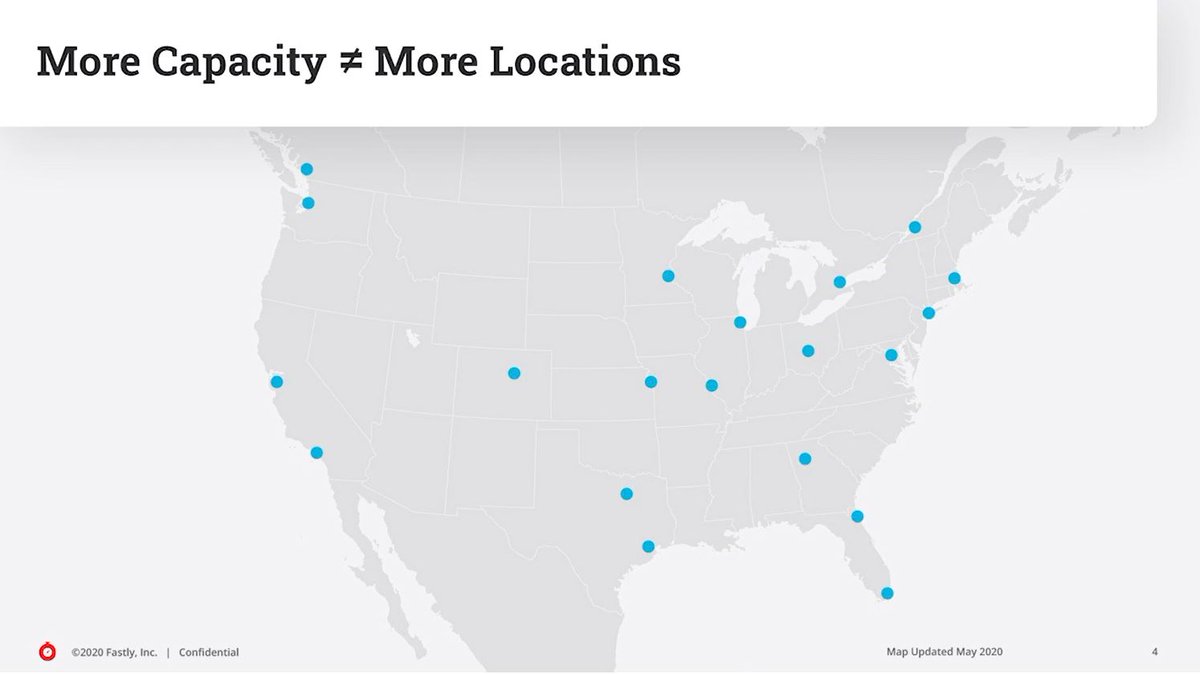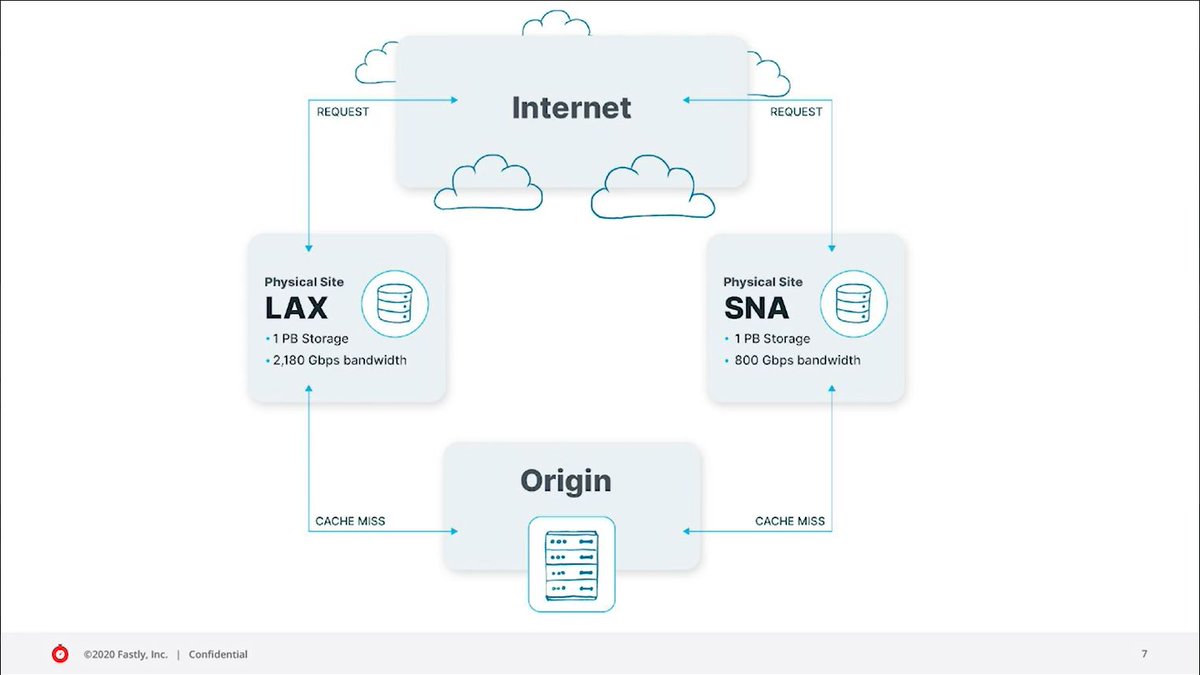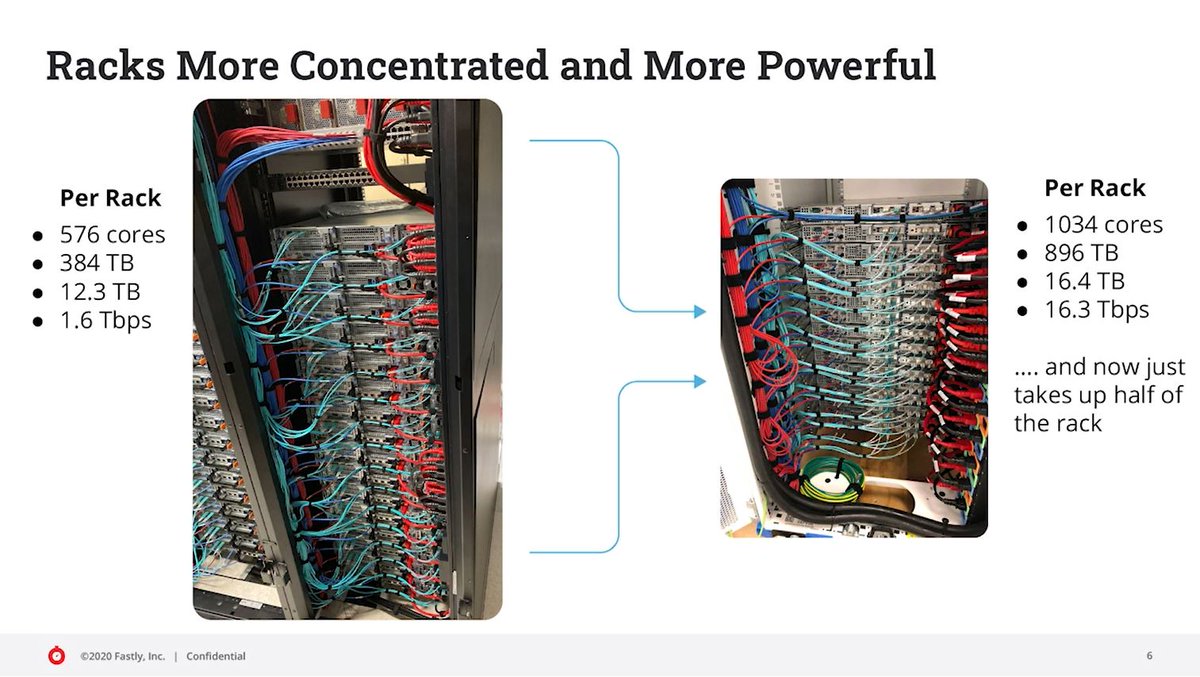Peter has done a wonderful job in digging into $FSLY Q3 ER.
I& #39;ve got a few more slides to add to his excellent article, all from one session I attended during Altitude 2020 - "Planning for the unpredictable: growing Fastly’s network in 2020 & beyond" w/ Artur Bergman
Thread https://abs.twimg.com/emoji/v2/... draggable="false" alt="👇" title="Rückhand Zeigefinger nach unten" aria-label="Emoji: Rückhand Zeigefinger nach unten"> https://twitter.com/StackInvesting/status/1330607986910392321">https://twitter.com/StackInve...
https://abs.twimg.com/emoji/v2/... draggable="false" alt="👇" title="Rückhand Zeigefinger nach unten" aria-label="Emoji: Rückhand Zeigefinger nach unten"> https://twitter.com/StackInvesting/status/1330607986910392321">https://twitter.com/StackInve...
I& #39;ve got a few more slides to add to his excellent article, all from one session I attended during Altitude 2020 - "Planning for the unpredictable: growing Fastly’s network in 2020 & beyond" w/ Artur Bergman
Thread
Acceleration in 2020 was due to:
+ Change in their approach from building more locations to concentrating presence in currently heavily used sites (12 -> 6)
+ Upgrading the hardware in those locations (14 -> 27)
which...
Created 48 Tbps add& #39;l capacity
+ Change in their approach from building more locations to concentrating presence in currently heavily used sites (12 -> 6)
+ Upgrading the hardware in those locations (14 -> 27)
which...
Created 48 Tbps add& #39;l capacity
More capacity doesn& #39;t mean more locations. It& #39;s all about efficiency and $FSLY is really good at it.
This is one part Peter briefly talks about in his article, I just want to give more details on how it looked before.
"2 physical sites working as 1 Metro POP"
"2 physical sites working as 1 Metro POP"
And this is how it looks in the racks...
Focus on - how they increased the networking capacity from 1.6 Tbps to 16.3 Tbps "which is ludicrous" ~ as Artur puts it word by word
This is how we plan to meet the demand in high-density metro regions around the world in next 2 yrs
Focus on - how they increased the networking capacity from 1.6 Tbps to 16.3 Tbps "which is ludicrous" ~ as Artur puts it word by word
This is how we plan to meet the demand in high-density metro regions around the world in next 2 yrs

 Read on Twitter
Read on Twitter







